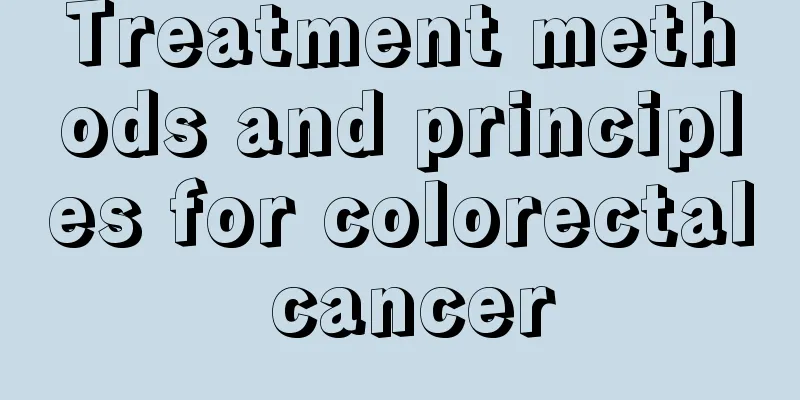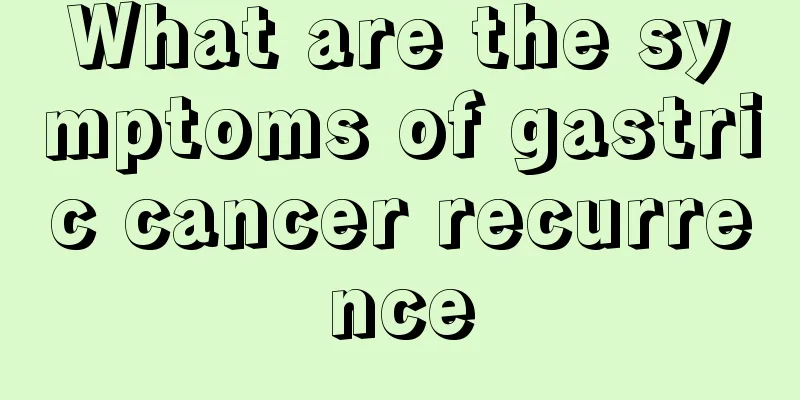Treatment methods and principles for colorectal cancer

|
Colorectal cancer is a common malignant tumor of the gastrointestinal tract, with a higher incidence rate among people aged 40 to 65 years. The incidence rate of colorectal cancer in men is significantly higher than that in women, at about 1.6:1. Treatment options for colorectal cancer 1. Surgical treatment: All colorectal cancers that can be removed should be treated with radical surgery as soon as possible if there are no contraindications to surgery. Radical surgery involves removing the tumor itself and completely removing the regional lymph nodes that may have metastasized. Therefore, only a thorough surgery can cure colon cancer. 2. Chemotherapy: Chemotherapy after radical surgery, also known as adjuvant chemotherapy, is an important part of the comprehensive treatment of colon cancer. The mechanism of adjuvant chemotherapy is to use chemotherapy to control and eliminate residual lesions in the body after radical surgery. Preoperative chemotherapy can reduce the stage of the tumor and increase the surgical resection rate. 3. Radiotherapy: For patients with unresectable tumors or distant metastatic lesions, local radiotherapy is also one of the commonly used methods for treating advanced colon cancer. It can shrink the tumor and improve the patient's symptoms. It is often used in combination with other treatment options. 4. Chinese medicine treatment: Currently, most of them are combined with surgery or chemotherapy for comprehensive treatment. It can reduce the side effects of chemotherapy and enhance the body's resistance to disease. 5. Other treatment methods: Immunotherapy, gene therapy, and targeted therapy are all biological treatments, and immunotherapy is currently the most widely used in clinical practice. Treatment principles for colorectal cancer The treatment principle of colorectal cancer is comprehensive treatment with surgical resection as the main approach, combined with chemotherapy and radiotherapy to reduce the recurrence rate after surgery and improve the survival rate. For unresectable colon cancer, neoadjuvant chemotherapy can be used. On the one hand, it can reduce the stage of the tumor and transform some unresectable tumors into resectable tumors; on the other hand, it can prolong the patient's survival time and improve the patient's quality of life. |
<<: Surgical treatment of colorectal cancer
>>: Misunderstandings in the treatment of colorectal cancer
Recommend
Early symptoms of pancreatic cancer
Pancreatic cancer usually has no obvious symptoms...
What is the best thing to use to wash your face
What is the best way to wash your face? This may ...
Do potatoes have pollen?
Potatoes are a very familiar vegetable to everyon...
Can stomach cancer be transmitted to children?
Gastric cancer is a common malignant tumor in mod...
Three dietary treatments for patients with colorectal cancer
During the postoperative recuperation period of c...
Is Maifan stone pot good?
A medical stone pot is actually a pot that contai...
Is it OK to run if you have nasopharyngeal cancer?
If you have nasopharyngeal cancer, you can do mod...
What is the basis for the diagnosis of gallbladder cancer
A reasonable diet is very important for the recov...
What are the typical symptoms of early lung cancer? There are 4 typical symptoms of early lung cancer
Some patients have experienced this situation, th...
Can crab milk powder be eaten together
Crabs are rich in nutrients, and the protein cont...
How to exercise the cervical spine and shoulders
Nowadays people pay great attention to physical e...
Is axillary lymph node dissection necessary for breast cancer?
Radiotherapy is needed after surgery to prevent c...
The authoritative hospital for colon cancer
I believe everyone knows that colon cancer is a v...
What is the normal value of creatinine
Creatinine value refers to the normal value of bl...
What to do with the sequelae of metatarsal fracture
In life, we often suffer fractures due to some ac...









